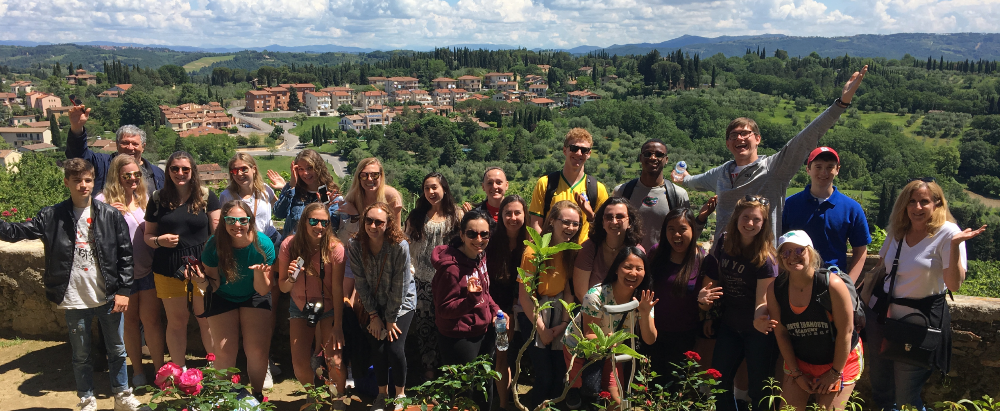
Rome Summer Institute
Introduction
From the wonders of Ancient Rome to the sweet buzzing of contemporary Roman society, the "Eternal City" is rich in history and culture unlike anywhere else in the world. Catholic University's Rome Summer Institute offers students an introduction to Italy's vibrant capital and its pivotal role in the development of Western civilization. Students have the opportunity to experience and participate in the past, present, and perhaps future of one of humanity's greatest millennial cities.
Eligibility
Students from all universities are encouraged to apply. If space is limited, Catholic University students will receive priority acceptance.
Academics
Catholic University hosts three different sessions over the summer, with each session providing one to three unique courses in a variety of subjects. Students may attend one session or both sessions, but may only enroll in a maximum of one course per session. The details for summer 2025 may be found below:
Session 1: May 11 - May 30, 2026
Session 2: June 8 - July 3, 2026
Summer Session I Courses
- CLAS 206R History of Ancient Rome
**Fulfills an Explorations in History requirement.
Instructor: Sarah Ferrario
- LSC 879 Visions of Italy **Unique Dates: May 9 - May 23, 2026**
**Counts towards the Library Science Degree
Instructor: Maria Mazzenga
**Students applying to the Visions of Italy course should be aware that there is an increased program fee ($2,225 instead of $1,550) due to an included multi-day trip to Florence.
Summer Session II Courses
- DR 106 Acting for Non-Majors
**Fulfills the Explorations in Fine Arts requirement.
Instructor: Jay Brock
- HIST 161R Rome/American Imagination
**Fulfills an Explorations in History requirement.
Instructor: Seth Smith
- NURS 403 Nursing Research **Unique Dates: June 14 - July 11, 2026**
**Graduation requirement for Nursing Majors**
**3.2 Minimum GPA Requirement**
Instructor: Mary Flynn
Accommodation & Meals
The Catholic University Rome Center is located on Via Garibaldi in the heart of the Trastevere district of Rome. Students are housed in doubles, triples, and quads, with a limited number of singles available upon request for an additional fee. Pillows, pillow cases, bed sheets, and blankets are provided for every resident, as is a partial meal plan and access to laundry machines. Residence hall staff are available 24/7 - at all times for emergencies and during the day for general assistance.
Visit the Rome website for more information about dorm life.
Finances
Students and parents are advised to discuss the expected costs of study abroad programs during the application process. Budget sheets are available at the top of the page and linked below as well. Students are charged a program fee and standard Catholic University tuition rates for 3, 6, or 9 credits. The budget sheets give an idea of the total amount students will need to budget for including transportation, meals, and other assorted costs.
Scholarships
Catholic University students applying to this program are encouraged to apply to available scholarships on the Office of Education Abroad’s
scholarships website.
